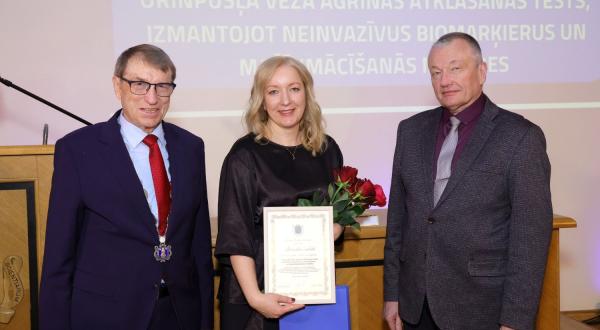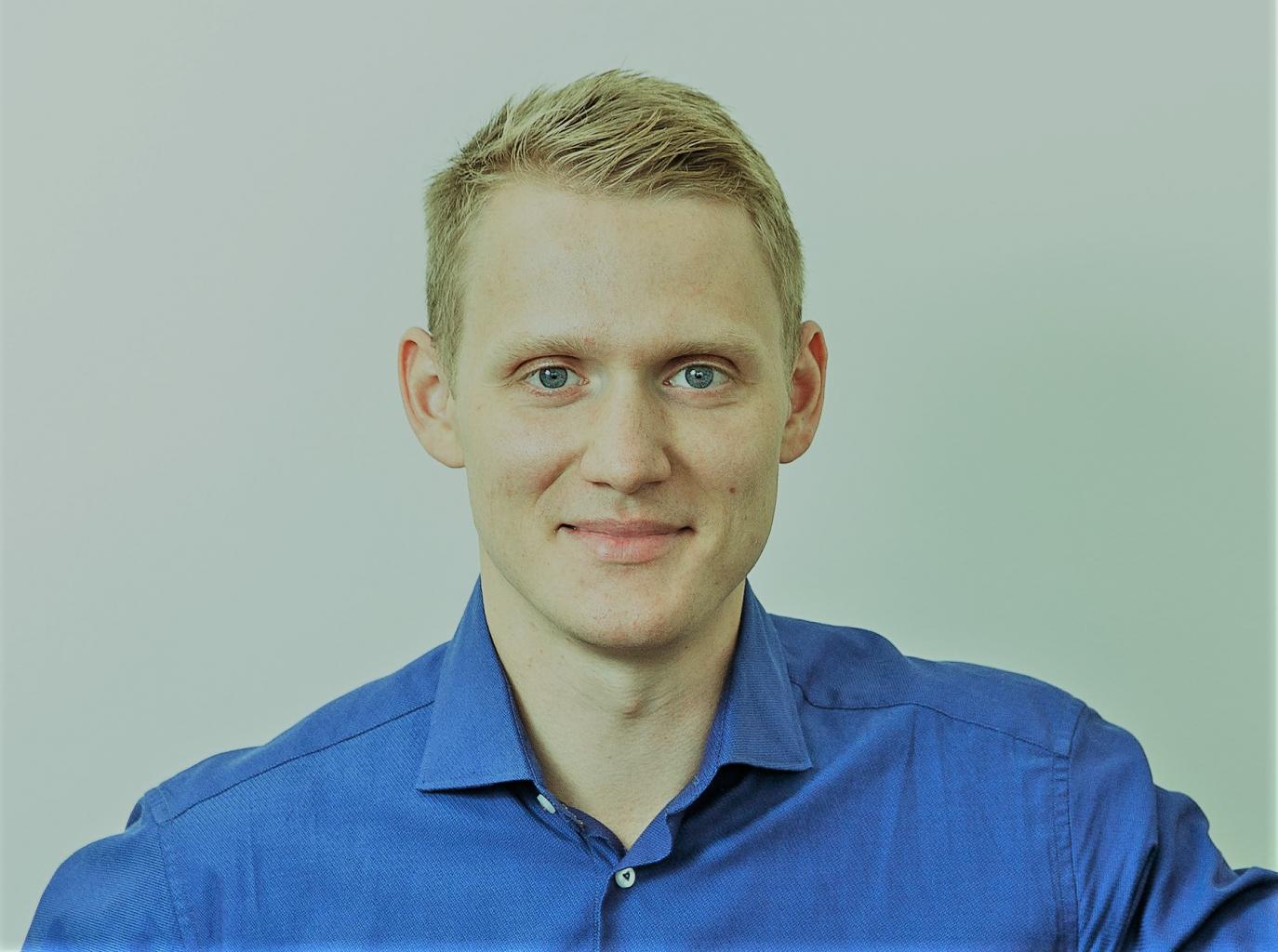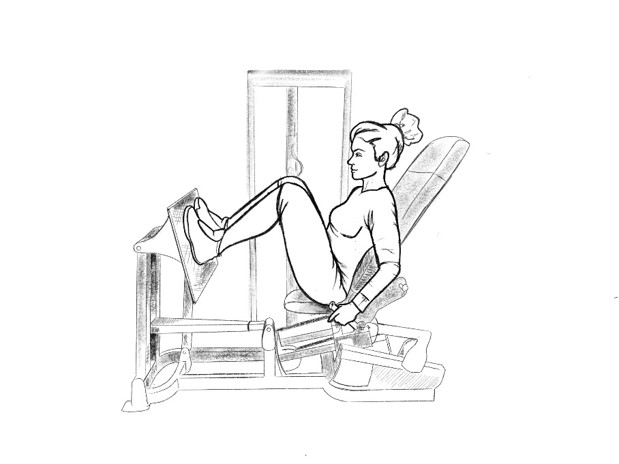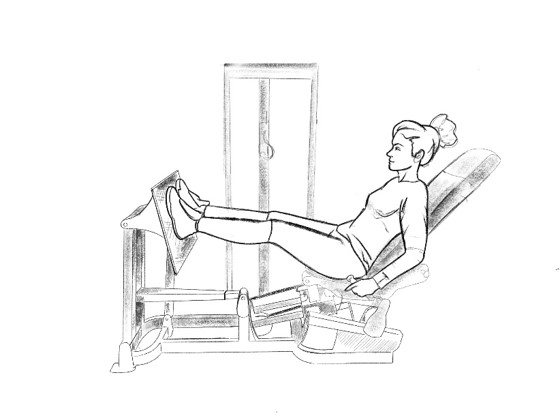RSU researcher proves strength training helps recovery of cancer patients
An average of 30% growth in muscle strength, more efficient treatment and faster recovery after surgery and chemotherapy – these are initial conclusions on the impact of strength training on the treatment of cancer patients.
More than 50 breast cancer patients are involved in the study, carried out by doctoral student at Rīga Stradiņš University, Rūdolfs Cešeiko (pictured). Half of the patients perform strength training workouts, whereas the remainder of patients are included in the control group that would allow an objective comparison of treatment results of patients engaged and those not engaged in physical activities.
According to the project author R. Cešeiko, during first-time evaluation, that lasts for an hour and a half, following a warm-up, the maximum muscle strength that is required when lifting gym equipment is measured. Participants complete so-called 4x4 training sessions, during which they perform push exercises for legs, repeated four times. For participants to be able to perform the assigned number of repetitions, 85% of the measured maximum weight is used. Training usually starts two or three weeks following surgery, is scheduled twice a week and takes only 20 minutes.
So far, the results of the study show a marked difference between training participants and the control group. According to Rūdolfs, the strength of leg muscles increases by 30%. It significantly facilitates the cancer treatment process, from the perspective of physical capability, the treatment weakens the patient’s body by 30%. Significant improvement in physical tests has been detected, for example, the speed at which the patient climbs stairs, gets up from a chair and performs similar daily activities. As muscle strength and power gradually increase, the quality of a patients’ life improves, as confirmed by various test results and the subjective opinion of participants. Up till now the predominating view has been that oncology patients need rest after surgery and during the recovery period, and physical activities may be harmful. However, the present study proves this opinion wrong.
How it all started
Initially, Rūdolfs participated in an international oncology research project during his Master’s studies in Norway, the city of Trondheim, the location of one of the country’s leading universities of research and technology. Unfortunately, this project did not produce the results that had been envisaged and the physical capabilities of participants even declined, which was, as concluded in the research paper, due to an insufficient physical load during training. This training was treated more as an opportunity to socialise rather than a power training session. Besides, the attendance was irregular.
Based on an extensive study programme focusing on the study of muscles, he came up with the idea to make use of maximum physical power, as, for example, according to the author of the project, the body finds it more interesting to exercise using 25 kg weights, rather than 5 kg. It results in the increase of muscle strength that is one of the preconditions for success. Does power training help to recover or treat the disease? Rūdolfs is of the opinion that muscle activity, the raising of aerobic capacity and chemical substances released by muscles during a physical load help in cancer treatment. The author intends to make this study even more extensive.
R. Cešeiko obtained his Bachelor’s degree at the RSU Faculty of Rehabilitation, where he studied rehabilitation. When asked for the reason for choosing this discipline, Rūdolfs explains that he finds it essential to help people become physically independent so that their quality of life would not be restricted. Therefore, he has always been interested in innovative solutions for improving the treatment process with the help of various activities. Besides, the fact that his mother is a social worker at Pauls Stradiņš Clinical University Hospital influenced his study choice. During his Bachelor’s studies at RSU Rūdolfs was a student mentor, guiding Norwegian students through Rīga; they shared information about the university in Trondheim, the admissions process and study opportunities. The competition was tough, nevertheless Rūdolfs succeeded and completed his Master’s studies in Norway. He was lucky to have extensive research and testing opportunities and – as Rūdolfs admitted – living in the laboratory. Rūdolfs had the opportunity to pursue doctoral studies in Norway, however, he came back to Latvia as he wanted this successful and internationally-recognised research to be the success of Latvian and RSU researchers.
Latvia is one step ahead
After returning from Norway, Rūdolfs was admitted to the doctoral programme at RSU – currently, he is a third-year, i.e., final-year student. The study has been conducted at the Breast Surgery Unit of the Oncology Centre of Latvia. The scientific supervisor of the paper is Dean of the RSU Faculty of Rehabilitation, Associate Professor Signe Tomsone, advisers – RSU Professor Aivars Vētra and Head of the Breast Surgery Unit at the Oncology Centre of Latvia, Jānis Eglītis. Currently, the majority of research results are already available and it can be concluded that power exercises definitely improve the treatment process for oncology patients. The results of the study are being presented to the international society of oncology professionals. Several weeks ago Rūdolfs returned from an international oncology conference held in Kuala Lumpur, the capital city of Malaysia where conference participants were informed about the results of the Latvian study. The results confirmed that we are a step ahead of researchers from other countries in this field.
Related news
 RSU research project on early diagnosis of bladder cancer receives recognition from the Latvian Academy of SciencesRecognition, Research, Innovation
RSU research project on early diagnosis of bladder cancer receives recognition from the Latvian Academy of SciencesRecognition, Research, Innovation





